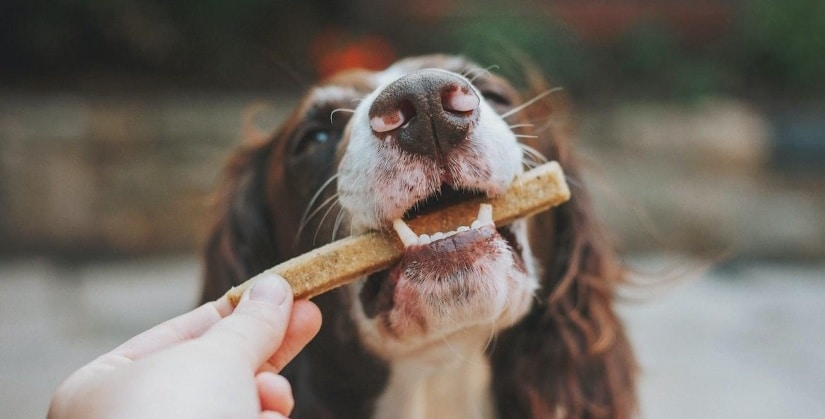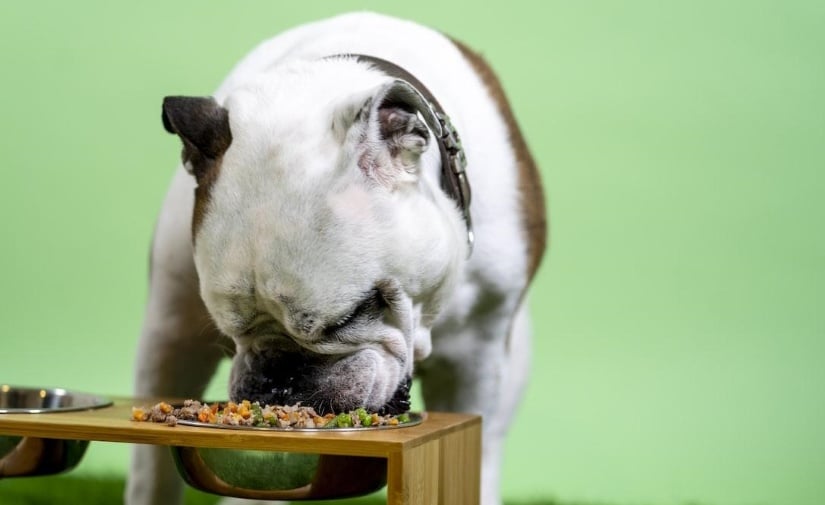Pets can bring so much joy and love into a household. Whether you have a dog, cat, bird, or another type of pet, they all need to be cared for in order to lead healthy and happy lives – this means providing them with the proper nutrition! You may be wondering how exactly to properly feed your pet? Never fear – with these essential pet care tips and tricks on how to feed your beloved animal companion properly will help ensure that your furry friend gets the nutritious meals he or she needs.
Different Breeds Of Pets Require Different Diets
Every pet is different and therefore requires a tailored diet to optimize their health. Knowing what your pet needs for sustenance isn’t always easy – after all, each animal has unique dietary needs based on its breed, activity level, and size. It pays to do some research and understand the specific breed of pet you have so that its nutritional requirements can be properly met. Different breeds often require different levels of protein, vitamins, carbohydrates, and other vital ingredients that keep them healthy. Take the time to create a balanced diet filled with the right foods so you can be sure your pet is getting all its essential needs fulfilled as part of its nutrition regimen. Feeding your pet properly is undoubtedly one of the most important responsibilities in providing for their overall well-being. For example, in order to feed your horse right, you’ll need to provide them with a mixture of hay, grains, and other fresh vegetables. Dogs need meat in addition to grains, while cats require a balance of wet and dry food.
Consider Portion Control
Managing your pet’s diet doesn’t have to be complicated. An important component of any good diet is portion control—ensuring your pet eats within specific amounts and not overindulging. For this reason, it helps to familiarize yourself with general guidelines for the amount and type of food your pet should consume. Think about using a measuring cup for dry food and/or purchasing products with pre-portioned treats to help keep their caloric intake in check. Remember, one of the most important parts of being a responsible owner is monitoring your pet’s nutrition! When in doubt, reach out to a vet for guidance or consult with a pet nutritionist who can provide insight on the best dietary plan for your specific pet. They can also provide advice on the types of treats and snacks that are safe to give your pet.
Foods To Avoid
In addition to being mindful of portion control, it’s important to know which foods should be avoided altogether when feeding your pet. Many common human foods can actually be dangerous for animals so it is important to understand what is safe to feed and what should be avoided.
Foods that should be avoided at all costs include:
- Chocolate, caffeine, and alcohol – All of these substances can cause severe poisoning in pets.
- Grapes, raisins, onions – These are toxic to animals in any form (raw, cooked, dried, etc).
- Xylitol – This is an artificial sweetener found in many gums and other products that can cause liver failure in pets.
- Macadamia nuts – These are poisonous to animals and can cause weakness, vomiting, tremors, and hyperthermia.
- Avocado – The leaves, fruit, and seeds of the avocado contain a type of toxin that is toxic to animals.
- Moldy or spoiled food – This type of food can contain toxins that can cause vomiting, diarrhea, and even liver damage.
In addition to avoiding these foods, it is also important to be aware of any food allergies your pet may have so you can make sure to avoid those ingredients as well. Feeding your pet a balanced diet filled with nutrient-rich foods is the key to keeping them healthy and happy. Of course, foods to avoid can vary from pet to pet, so it is always best to consult your veterinarian for more specific dietary advice.
Research The Best Types Of Food
Knowing what’s best for your pet’s diet can be tricky, so it pays to do research. Read up on the types of food that are most beneficial for your pet and make sure you buy good quality products whenever possible. And once you find suitable options, it’s important to stick with them. Any sudden changes in their diet can upset your pet’s digestion, resulting in uncomfortable symptoms such as vomiting or diarrhea. Maintaining consistency in their nutrition can help ensure that your furry friend gets all of the vital nutrients they need while also protecting their overall health and well-being. If you own a pet, understanding what goes into their diet is one of the most important aspects of being a responsible owner. Knowing which foods to provide and which ones to avoid will help you ensure that your pet stays healthy for years to come!
Don’t Forget About Supplements
For pet owners, it can be easy to think you’ve done enough when it comes to feeding your furry friend, but don’t forget about supplements! Just as pet owners need to make sure that they are getting all the required nutrients in their own diets, your pet needs the same. Supplements can provide additional health benefits such as improved digestion and coat health. Talk with your vet about what ingredients or amounts may be helpful for your specific type of pet so you can make sure they are getting the proper nutrition and staying healthy! For example, a gecko may require calcium supplementation due to their particular diet, while a dog might need Omega-3 fatty acids for joint health.
Watch Out For Food Allergies
Feeding your pet the right diet is vital for maintaining their health and well-being. Watching out for signs of food allergies can be key in helping to keep your pet healthy. Pet owners should always read labels carefully and adjust diets accordingly if they identify signs of food allergies or other sensitivities that may be related to the pet’s food. If your pet does show any signs of an allergic reaction, contact your veterinarian for further guidance. Remember, a balanced and nutritious diet will lend a healthy, glowing coat and strong bones—all important components to a happy and healthy pet! Common signs of an allergic reaction in pets include:
- Vomiting
- Diarrhea
- Itching or redness of the skin
- Sneezing
- Excessive scratching or licking
How Often Should You Feed Your Pet
In general, most pet owners should feed their pets twice a day. This helps keep them from becoming overly hungry and overeating, as well as promoting healthy digestion. You should also provide fresh, clean water every day to make sure your pet stays hydrated. Different breeds, however, may have special dietary considerations that should be discussed with your veterinarian. For smaller dogs, you may want to feed them more often throughout the day, while larger dogs may need fewer meals. As always, talk with your vet for more specific advice on how much and how often you should be feeding your pet.
How To Choose A Diet For Your Pet
Choosing the right diet for your pet is an important part of responsible ownership. Consider your pet’s age, breed, and activity level to decide on a type of food that is best suited for them. Also, look into different food types such as dry foods or wet foods. Dry foods are great for maintaining dental health in pets, while wet foods can provide more moisture and offer a variety of flavors. Talk with your vet about what types of food are best for your pet’s individual needs. Finally, when selecting their diet make sure to take into account ingredients like proteins, carbohydrates, vitamins, and minerals that should help keep your pet healthy in the long run.
Make Sure To Get Regular Checkups
Regular checkups with a vet are essential for your pet’s well-being. Catching any potential issues early on can help ensure the well-being of your beloved pet and prevent any health issues that could be dangerous or expensive to treat. In addition to general checkups, make sure your pet is properly vaccinated – this will not only protect them from common illnesses, but it also protects other animals in your area too. Doing regular checkups and keeping up with vaccinations shows how much you care about your companion and helps prevent painful and costly health problems.

Taking care of a pet is an essential part of providing a happy and healthy life for them. With these pet care tips, you can feed your pet properly and give them all the nutrition they need. Remember that different breeds of animals require different diets and to research the best food option for your chosen breed. Don’t forget about portion control and supplements as well, since they can make a big difference in the health of your pet. Allergies are also something to watch out for – adjust their diet if needed. Finally, be sure to get regular checkups with the vet and make sure they stay up-to-date with vaccinations. Take care of your furry companion properly, and they’ll thank you with lots of love in return! We hope that this article was helpful!
